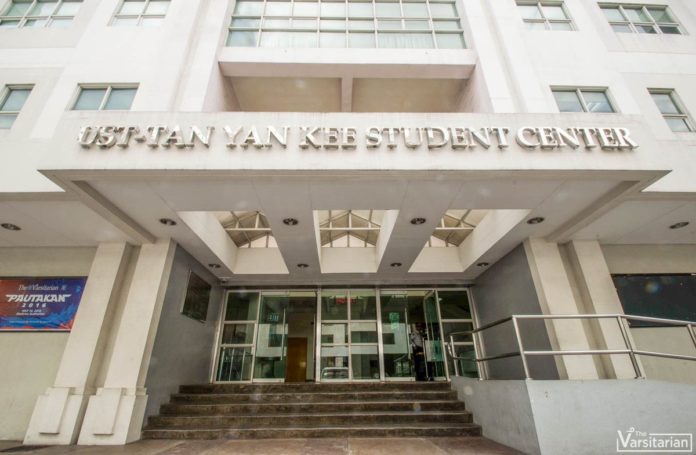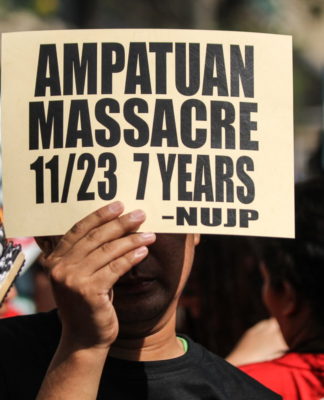THE STUDENT Organizations Coordinating Council (SOCC) is seeking revisions to the accreditation process of student organizations in the University, following the recent censorship dispute between the Office of the Student Affairs (OSA) and online media organization TomasinoWeb.
SOCC President Raphael Gabuat said the accreditation system should be revamped by implementing changes to the Student Organizations Recognition and Requirements (SORR), starting with the section concerning social media guidelines.
The SORR, a thick set of documents, is submitted by student organizations annually to renew their accreditation and be recognized by OSA. Failure to meet these requirements could lead to a downgrade in accreditation status or even non-recognition, significantly limiting the number of activities the organization can mount.
“It (SORR) is what’s holding student organizations back [from fulfilling] their organization’s image and objectives,” Gabuat told the Varsitarian.
“Ngayon namin nakita ‘yung perfect timing na somewhat maging negotiating chip namin with the administration, na ito talaga ‘yung nakikita ng student organizations na kailangan baguhin,” he added.
Gabuat said the SOCC’s focus is on revising Annex I of the SORR, which contains guidelines for responsible social media use. The proposed revision involves granting advisers the authority and responsibility to oversee and approve organizations’ online content.
Under the existing SORR, advisers are authorized to remove a social media post “if something is found to be erroneous or irregular.” However, in cases where there is a disagreement between the organization’s officers and the adviser, the final decision is to be made by the Student Welfare and Development Committee or the OSA.
“We want to specify and make this document a legal and binding contract between the administration, the organization and its adviser” Gabuat said. “This document will specify and emphasize that the organization adviser will have credibility and liability for posting and taking down any publication materials, articles, or pictures that the organizations will publish.”
The TomasinoWeb controversy stemmed from a situation where the adviser’s decision not to remove a photo posted on social media was overridden by an order from the OSA, ultimately resulting in the adviser’s resignation.
Gabuat said that while the SOCC wants to “maintain the bridge between the organization and the administration,” revising the accreditation system would “release the control of the administration that is grasping the organizations.”
“We see that organizations are struggling or being oppressed because of this system,” he said. “Even in the past years, nakikita namin na malaking issue itong system na ito kasi maraming mga hindi nare-recognize agad, maraming mababa ang recognition status.”
Only 14 out of 150 student organizations received full accreditation status for Academic Year 2023 to 2024, a steep drop from 137 fully accredited organizations last year.
Gabuat said the suggested amendments to the SORR were still being drafted. Once finalized, these will be forwarded to the Board of Directors for review.
Following the board’s input, the proposed changes will be submitted to the OSA for approval.
Gabuat also apologized for the SOCC’s “silence” amid the TomasinoWeb issue, saying the council “[did] not want to act hastily without a proper plan of action.”
“We want to say sorry for letting our constituents in the organization left in the dark this past week kasi we wanted to release a statement that is concise and concrete enough,” he said.
“Starting right now, we, the SOCC, would help our constituents–the student organizations–to voice out [their sentiments] and let the administrators hear their cries.”
















